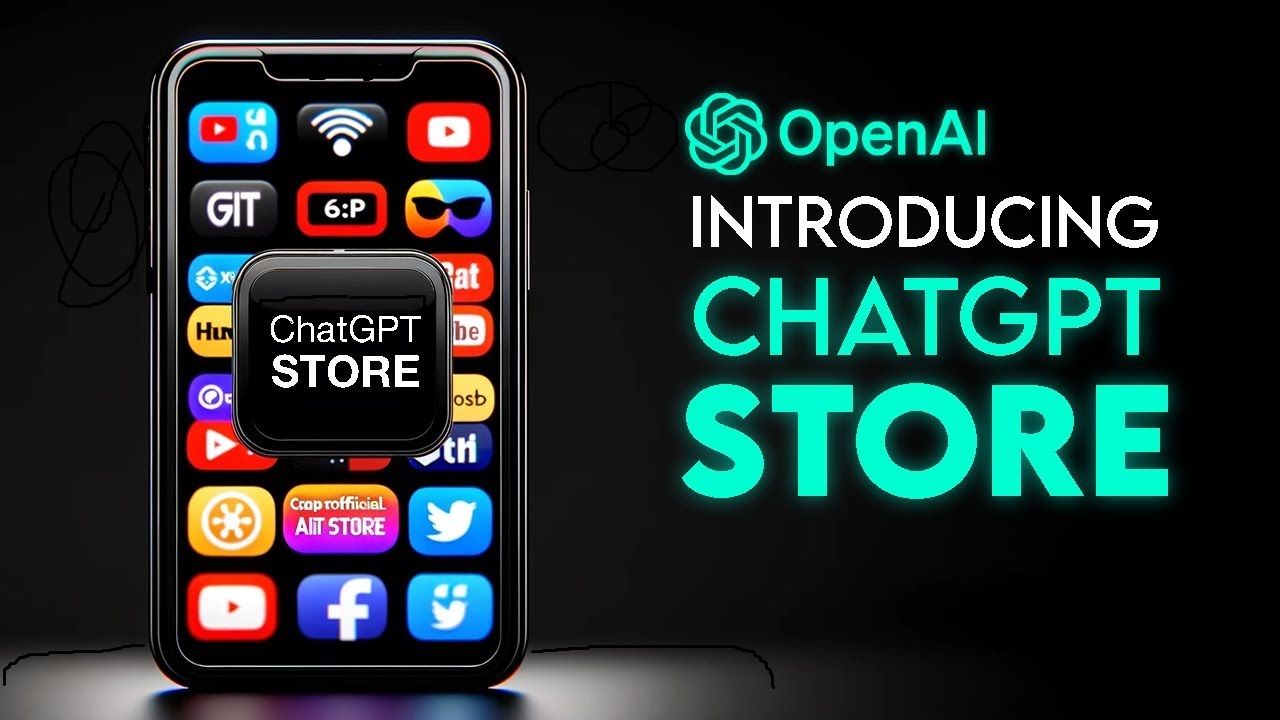OpenAI GPT Introducing!ChatGPT Store
openai gpt
Revolutionizing the AI Landscape: OpenAI’s GPT Store Unveils a New Era of Creativity and Commerce
2024 kicked off with a bang in the AI world, seeing the much-anticipated unveiling of the ChatGPT store. This event, occurring quietly in early January, is a pivotal moment in the AI industry, reshaping how creators and marketers engage with artificial intelligence. The GPT store’s debut is a game-changer for AI’s commercial landscape.
It represents a new era where creators can sell their custom GPT models. This not only expands the market but also empowers users, especially those without a technical background. The key player in this is the GPT Builder, a groundbreaking tool that allows the creation of personalized AI assistance using simple instructions.
This democratizes AI, making it accessible to a broader audience. During the holiday season of 2023, while the tech world was relatively quiet, OpenAI was preparing for this significant launch. On January 4, 2024, OpenAI announced to ChatGPT Plus and Enterprise customers the upcoming GPT store.
This unique platform enables users to share or sell their GPT creations. Those with access to the GPT Builder can craft, publish, and potentially profit from their custom GPT models. This strategic move by OpenAI aims to expand the ChatGPT community.
Monetizing AI Creativity: Unveiling the GPT Store at OpenAI’s Inaugural Dev Day
They introduced the GPT store to encourage developers and business professionals to monetize their GPTs. This concept was unveiled at OpenAI’s inaugural Dev Day, an event that mirrored the developer conferences of tech giants like Apple, Amazon, and Google. For marketers, the GPT store is a boon.
It simplifies the process of creating AI-powered assistants. Marketers can type out their requirements in plain language, and the GPT Builder will craft an AI assistant tailored to those tasks. This approach eliminates the need for in-depth technical knowledge, making AI more accessible and user-friendly.
Previously, the creation and sharing of GPT models were confined to the ChatGPT website, primarily for private use. However, these GPTs are distinct from ChatGPT plugins. While plugins enhance the main ChatGPT, GPTs serve as personalized versions, operating based on the creator’s guidelines and content.
With the GPT store, these models become a strategic asset. The store is designed to foster a community of creators and serve as a platform for enhancing customer experience strategies for various businesses. The initial launch date of the store shifted, leading to speculation about its relation to the controversy surrounding Sam Altman’s departure as OpenAI’s CEO.
Navigating the Future: Unresolved Considerations and Anticipated Impact of OpenAI’s GPT Store
Nonetheless, this delay provided marketers with a grace period to experiment with the GPT Builder and identify effective content strategies. A critical aspect yet to be resolved is the revenue-sharing model. OpenAI’s decision on whether the GPT store will incorporate a profit-sharing plan is pending.
If implemented, this could lead to a surge in enthusiasm and innovation, reminiscent of the Apple App Store’s impact on app development. Another important consideration is the approval process. OpenAI needs to establish clear guidelines for GPTs in its store and verify the authenticity of GPT sellers.
This is crucial to ensure that customers purchase high-quality, legitimate bots. The GPT store is akin to an App Store moment for AI. It allows users to share, discover, and profit from their GPT bots, much like app developers in the App Store.
The significant advantage here is the elimination of the need for extensive programming skills. Users can integrate AI automation into their services and content, enhancing customer experiences. Early adopters of the GPT Builder are likely to introduce innovative applications.
Exploring the Potential: Diverse Applications and Excitement Surrounding AI in the ChatGPT Store
These could range from AI tools that enhance organizational customer experiences to personal AI assistants capable of interpreting complex data for actionable suggestions. One could envision a backend-oriented GPT designed to streamline operations for better customer engagement. Alternatively, a concierge GPT adept at synthesizing recommendations from diverse data sources might emerge.
Such a GPT could automate custom actions for users, akin to a Zapier service. The road to creating personal AI is really big and full of choices because there are so many different ways to mix things up. With the new ChatGPT store opening, lots of people are getting excited about what AI can do.
AI tools like ChatGPT and BARD are already great at working with lots of information and giving detailed answers. The GPT models in this store will show us how AI that’s made for specific needs can answer more focused questions. To sum it up, the start of the ChatGPT store is a big deal.
It’s not just a new thing in technology; it’s something that’s going to lead to lots of new ideas and uses for AI. This store opens up many chances for people who make AI and for those who use it. Looking ahead, companies that don’t use machine learning and AI might fall behind because the world is using more and more data.
The ChatGPT store is set to become a key place for developing AI, offering lots of chances for growth, new ideas, and making money in the world of AI. I hope you enjoyed the articles, and don’t forget to hit the like subscribe button to our blog for more articles like this. Thanks for watching, and see you at the next one.
OpenAI Introducing ChatGPT Store
OpenAI Introducing ChatGPT Store
Also Read:- Google new model Powerful PaLM-2

Your ability to convey information in an engaging way is impressive. Fantastic post!
thank you
I’m always amazed at the quality of your writing. This post was no exception. Fantastic job!
thanku
This article was a pleasure to read. Your insights are really valuable and thought-provoking. Great job!
thanks brother